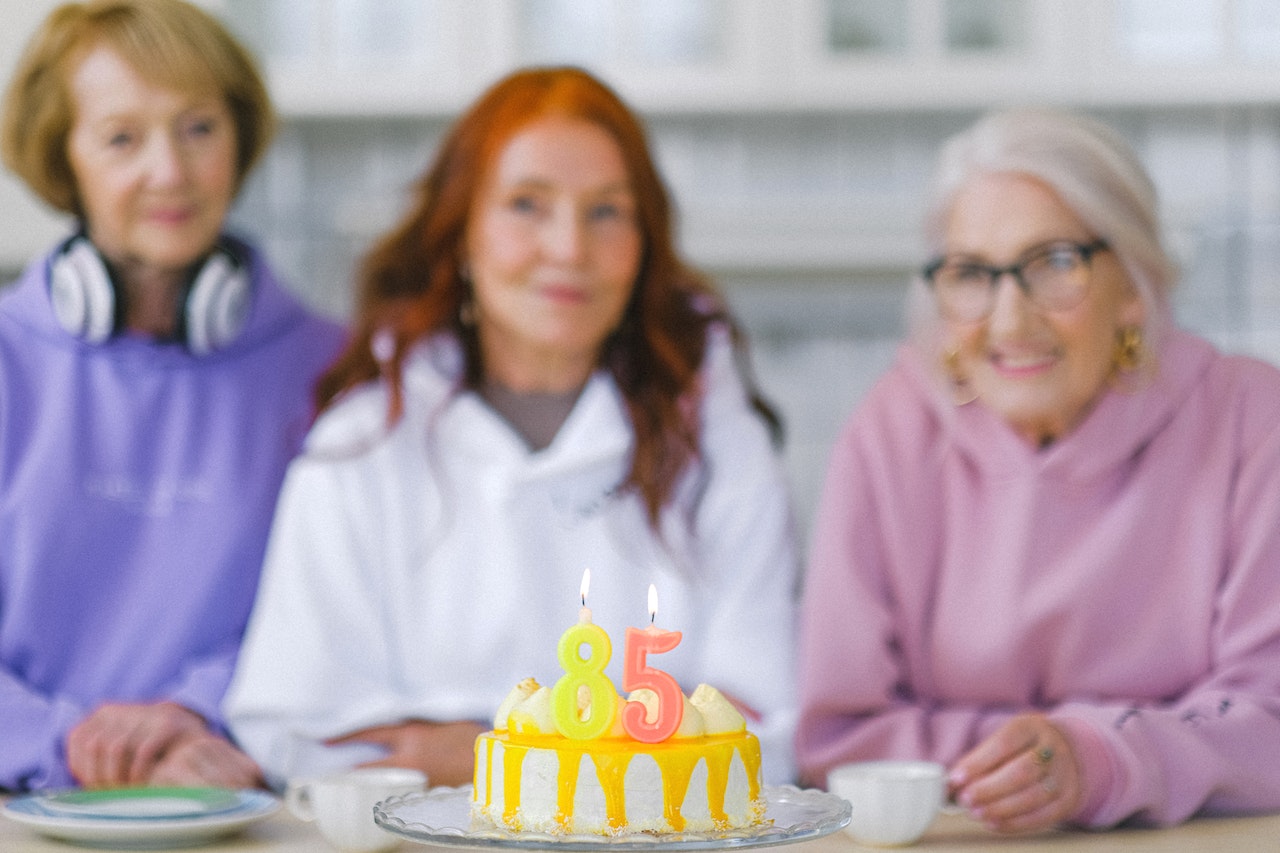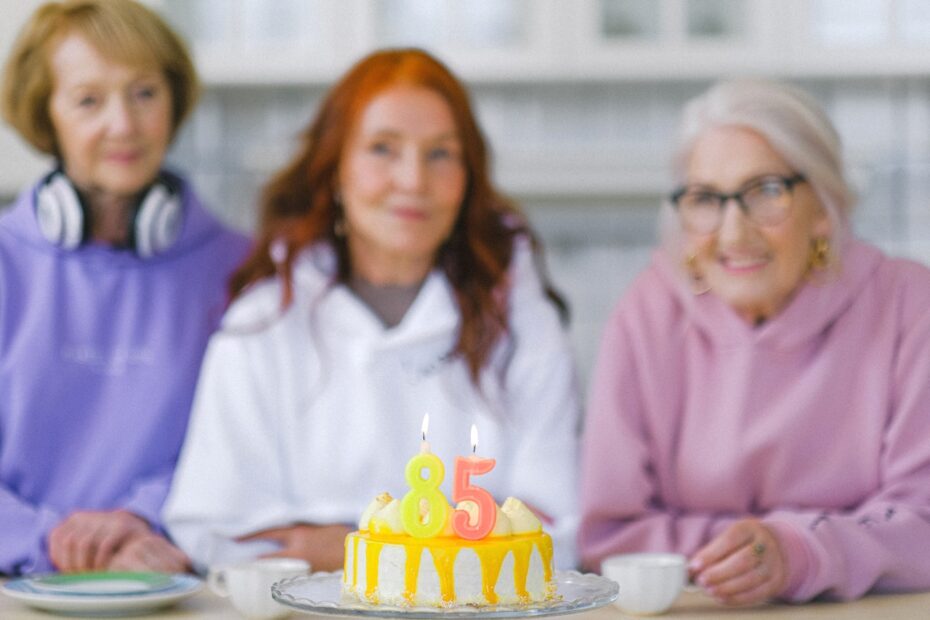The concept of positive ageing in older adults is gaining traction worldwide.
In recent years, the concept of positive ageing has gained significant attention and recognition on a global scale. It encompasses the diverse strategies older individuals employ to navigate the challenges of ageing while maintaining a positive outlook on life. In this article, we delve into the pivotal role that religion, spirituality, and personal beliefs play in the context of positive ageing. Our exploration draws insights from a 2018 paper authored by Malone, J., and Dadswell, A., which is available for reference in the provided citation.
This paper is based on qualitative focus groups located in London England and focuses predominantly on more Western-based cultures and societies.
Citation: Malone, J., & Dadswell, A. (2018). The Role of Religion, Spirituality and/or Belief in Positive Ageing for Older Adults. Geriatrics, 3(2). https://doi.org/10.3390/geriatrics3020028

Introduction to the Role of Religion, Spirituality and Beliefs in Positive Ageing.
The notion of positive ageing has been gaining momentum in contemporary research and literature, shedding light on new perspectives for older adults. Within this context, our exploration reveals a fundamental truth: Religion, Spirituality, and Beliefs play a pivotal role in shaping the experience of positive ageing. These aspects are not merely abstract concepts but integral components of the daily lives of older individuals, providing them with a wellspring of strength, comfort, and hope. Moreover, they foster a profound sense of community and belonging.
Religion, Spirituality, and Beliefs contribute richly to our understanding of positive ageing, extending beyond the realms of medical and mental well-being to offer a more holistic and comprehensive perspective.
Interestingly, recent studies highlight a shift in how individuals approach Religion, Spirituality, and Beliefs as they age. Many are developing increasingly personalized beliefs that may not adhere rigidly to traditional religious doctrines. While this individualization reflects the diversity of human experiences, it has also revealed potential challenges in coping with the ageing process.
Recognizing this evolving landscape, there arises a pressing need for further research, literature, and practical methods that harness the power of Religion, Spirituality, and Beliefs to facilitate positive ageing among older adults. This urgency underscores the significance of our exploration in this article.
The definition of positive ageing.
Defining positive ageing proves to be a nuanced endeavour, often characterized by complexity. However, a clear and comprehensive definition emerges from the work of the Center for Positive Ageing, which states:
‘Positive Ageing’ encapsulates the hopes and aspirations of individuals and communities as they navigate life’s changes and challenges in the later stages of life. It signifies a commitment to living these years productively, actively, and with fulfilment. This perspective emphasizes seizing opportunities, embracing innovations, and drawing from research to enhance an individual’s sense of independence, dignity, well-being, and good health, ultimately facilitating their continued participation in society.
(Reference: Stock J., Schofield P., Docking R.E. “What is Positive Ageing?” In Docking R.E., Stock J., editors. International Handbook of Positive Ageing. Routledge; Oxford, UK: 2017. pp. 5–15.)
This definition underscores the multifaceted nature of positive ageing. For some, it involves maintaining cherished relationships, relying on robust social and family support systems, and actively engaging in community life.
Limitations in the notion of positive ageing.
While the concept of positive ageing brings forth numerous benefits, it is essential to acknowledge its potential limitations and the associated negative consequences for older individuals. It is crucial to note that the term “successful ageing” often arises in discussions surrounding positive ageing, implying an opposite – the concept of “failed ageing.”
Positive ageing, at times, can inadvertently foster an idealistic and perhaps unrealistic expectation that may prove unattainable for many due to a variety of factors, including health and socio-economic circumstances. This disconnect can result in a profound sense of unsuccessful ageing, accompanied by a range of adverse effects on mental and emotional well-being.
Religion, Spirituality and Beliefs
Religion, as a concept, generally manifests as a more outward and public expression of one’s connection to the “transcendent.” It encompasses a set of beliefs, practices, and behavioural rules and often operates within organized and community-based structures. However, it’s important to note that religion can also be a deeply personal and private practice.
In contrast, spirituality delves into something more inward and personal—a profound individual expression of beliefs and practices. Modern interpretations of spirituality encompass individuals who adhere to specific religious doctrines and those who do not. Spirituality is founded on the notions of connectedness, purpose, meaning, and the transcendence of self. It is highly personal and widely regarded as an intrinsic and essential aspect of human existence.
Beliefs, as articulated by Coleman P.G. in “Belief and Ageing: Spiritual Pathways in Later Life,” hold the power to shape our life’s goals and objectives. These beliefs encompass religiosity and spirituality and are often intertwined with cultural values.
Religion, Spirituality, and Beliefs serve as platforms for individuals to articulate and convey their perspectives on life—how they perceive, experience, understand, and interpret it. These elements provide profound meaning and purpose in life, playing a vital role in the lives of individuals. It’s important to recognize that a multitude of beliefs, religions, and forms of spirituality exist, and they do not necessarily conform to Judeo-Christian or Islamic conceptions. Each person’s understanding of Religion, Spirituality, and Beliefs is unique and deeply personal, translating directly to their individual reality.
The shift in Religion, Spirituality and Beliefs that come with age.
Religiosity, Spirituality, and Beliefs are profoundly intricate and often resist a singular, definitive definition. Nevertheless, extensive data collected through national censuses and research studies reveal a discernible shift that occurs with age. This shift predominantly involves a transition from more public expressions of religiosity, spirituality, and beliefs to predominantly private ones.
Diverse ways of engaging with religion, spirituality, and beliefs exist, and these methods can vary significantly across individuals, circumstances, and historical eras. In some instances, individuals may identify with a specific religion but not actively practice its rituals and teachings, while in other cases, people who do not associate with a particular religion may still draw upon its principles for occasional support and guidance.
The observed shift, as discussed earlier, transcends geographical boundaries and is notably prevalent in Western and European societies, particularly in modern times. The separation of religious institutions from political structures has contributed to this shift, rendering matters of religion, or the absence thereof, largely a private affair.
Numerous research studies have established a profound interconnection between religion, spirituality, and beliefs and physical health, emotional well-being, and overall quality of life. This correlation is especially pronounced when individuals confront medical setbacks and other life challenges.
It is crucial to highlight that only in recent years has religion become increasingly disconnected from healthcare, and this shift has had discernibly adverse effects on support systems for individuals dealing with medical issues that result in ill health. This decline in the integration of religious and spiritual support into healthcare can be attributed to a broader trend toward more scientific and clinical approaches, which have departed from the holistic and personalized approaches of the past.
The connection between religion, spirituality, beliefs and medical health clearly exists and when this connection exists, it can definitely provide a more positive outcome for the treatment of medical cases, faster positive outcomes in both physical and mental cases.
Health, well-being, Positive Ageing and the connection to Religion, Spirituality and Beliefs.
While there is limited specific research directly linking religion, spirituality, and beliefs to positive ageing, some literature does shed light on the interplay between spirituality and successful ageing, as well as the overall health and well-being of older adults.
Crowther et al. introduce the concept of ‘positive spirituality,’ building upon Rowe and Kahn’s model of successful ageing [9]. They argue that this model overlooks the pivotal role spirituality plays in the ageing process. According to Crowther and colleagues:
“Positive spirituality entails the development of a personal, internalized connection with the sacred or transcendent that transcends racial, ethnic, economic, or class boundaries. Positive spirituality draws from both religion and spirituality.”
They go on to propose that the concept of positive spirituality can mitigate feelings of helplessness and loss of control often associated with illness, reduce stress, and enhance feelings of purpose in life. They argue that spiritual activities, such as prayer, can alleviate feelings of isolation, and the communal aspect of spirituality can yield positive outcomes for older adults.
Similarly, Sadler and Biggs contend that recognizing and addressing the existential and spiritual needs of older adults could enrich our understanding of ‘success’ in later life [35]. They emphasize the importance of acknowledging spirituality because it can significantly influence well-being as people age, enabling older adults to adapt to the challenges of growing older.
Furthermore, older adults themselves often cite various factors as contributing to ‘successful ageing,’ including maintaining a positive perspective, developing coping strategies, preserving active independence, fostering meaningful relationships, enjoying personal freedom, having a relationship with God, and nurturing a sense of spirituality [36].
Although the literature employs the term ‘successful ageing,’ the ideas explored therein are highly relevant to the broader concept of positive ageing. They underscore the potential for religion, spirituality, and beliefs to promote positive ageing and enhance the overall well-being of older individuals.
Follow the links below, for detailed information regarding our accommodation options.
Conclusion
In conclusion, as we wrap up this exploration into the profound connection between religion, spirituality, and beliefs in the context of positive ageing, we reflect on the intricate tapestry of experiences that define the later stages of life. In this journey, the support systems and coping mechanisms rooted in one’s personal beliefs play an instrumental role.
This post, along with our previous discussions in “Placing Someone with Alzheimer’s in a Care Facility – Part 6” and “An Introduction to Affordable Alzheimer’s Care 8-week Series Focused on Comprehensive Care,” underscores our commitment to providing comprehensive insights into the multifaceted aspects of ageing and care for older adults. We believe that fostering understanding and awareness is a vital step toward enhancing the lives of those affected by Alzheimer’s and other age-related challenges.
We extend our heartfelt gratitude to all our readers for their unwavering support of our blog. Your engagement and feedback inspire us to continue this journey of exploration and discovery. To stay updated and connect with our community, please join us on Facebook and LinkedIn.
Let us leave you with this inspiring quote: “Age is an issue of mind over matter. If you don’t mind, it doesn’t matter.” – Mark Twain
Thank you for being a part of our journey, and here’s to positive ageing, thriving, and embracing the richness of life at every stage.
The complete study is available HERE: https://www.ncbi.nlm.nih.gov/pmc/articles/PMC6319229/#B7-geriatrics-03-00028
Acknowledgements
This research was supported by seed corn funding from the Faculty of Health, Social Care and Education at Anglia Ruskin University. The authors would like to thank all of the participants who took part in the research, as well as Professor Pat Schofield who supported the research and Pauline Lane and Ceri Wilson for undertaking a critical read of the article.
Author Contributions
Conceptualization, J.M.; Data curation, J.M.; Formal analysis, J.M. and A.D.; Funding acquisition, J.M.; Investigation, J.M.; Methodology, J.M.; Project administration, J.M. and A.D.; Writing—original draft, J.M.; Writing—review & editing, J.M. and A.D.
Funding
This research was internally funded by Seed Corn Funding for Early Career Researchers from the Faculty of Health, Social Care and Education at Anglia Ruskin University.
You can make a difference
With your assistance, the volunteers at La Gratitude will be able to take better care of not only the residents at the old age home but also the greater Newcastle community. La Gratitude is constantly involved in outreach projects to help the elderly in need in and around Newcastle.
Your donations will be greatly beneficial in the provision of food and other basic necessities for the less fortunate elderly people that require assistance.
Donating is easy, click here to donate now.







